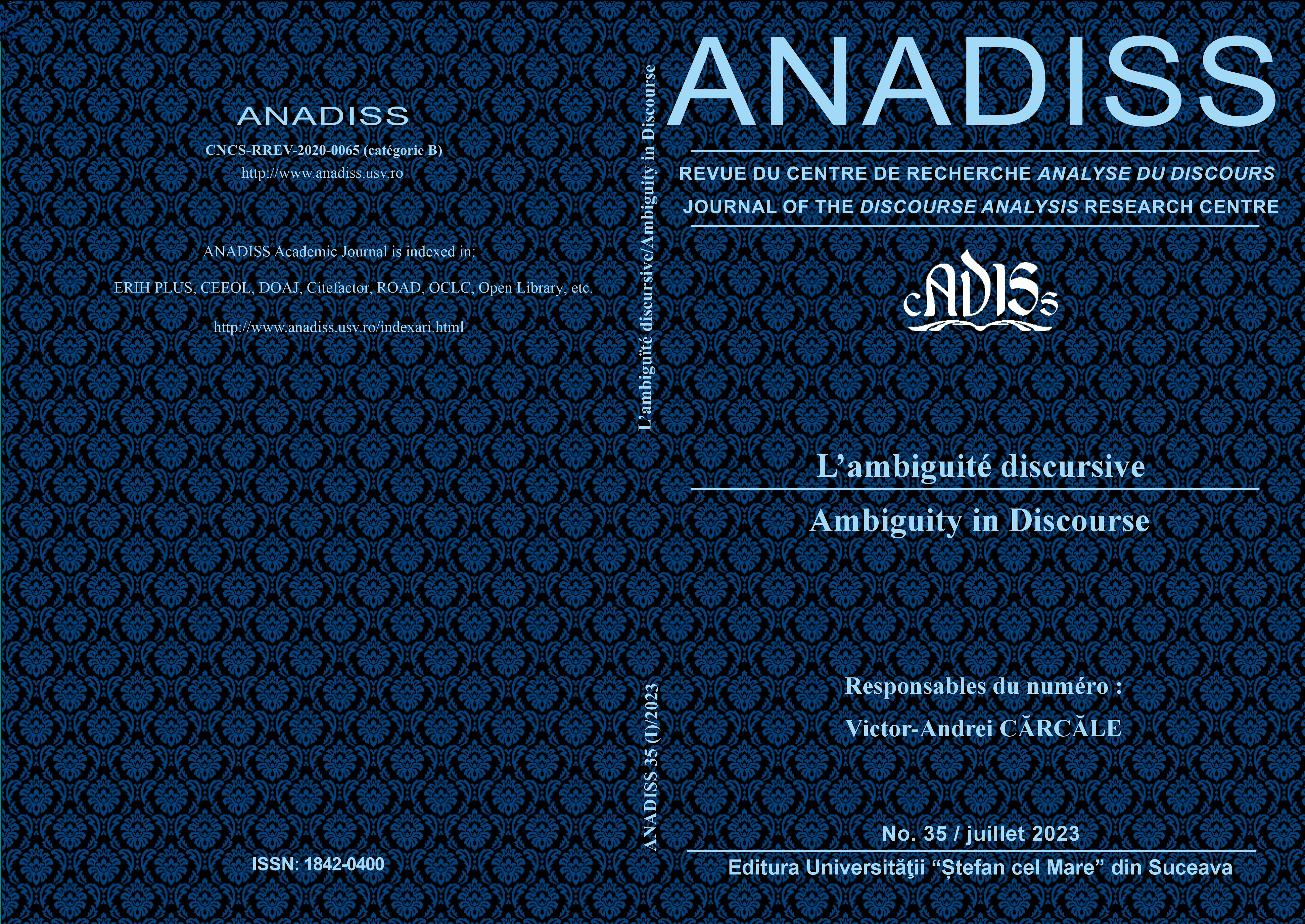Définitions traditionnelles des termes et formules lexicographiques « égoïstes » dans le métalangage stylistico-littéraire
Traditional definitions of “selfish” lexicographic terms and formulas in stylistic-literary metalanguage
Author(s): Natalia AzmanovaSubject(s): Language studies, Theoretical Linguistics, Morphology, Lexis
Published by: UNIVERSITATEA »ȘTEFAN CEL MARE« SUCEAVA
Keywords: literary terminology; metalanguage; denotative neologism; narratological device; modern lexicography; exegesis and textual decoding;
Summary/Abstract: Every branch of knowledge, whether humanities or science, has its terminological corpus. This corpus is in a relentless evolution. Literary science, literature theory and criticism is a true heritage (un véritable savoir sur la littérature), which has never been motionless in terms of enriching, renovating and updating its scientific vocabulary, which has become more and more specialized over the time. Let us just remember the triumphal entry of linguistics, since 1960, which was coined as New Critique. From that period on, in the process of decoding and exegesizing the text (especially the literary one), critics used a series of sophisticated, polysemantic, unsettled terminological units, not defined by specialized lexicography. Reading criticism implies a precise knowledge of this specific, peculiar language, known as a “literary terminology”.Rhetoric devices of the past are basically defined, minutely characterized and settled by lexicographic sources of didactic use, or academic-encyclopedic sources. Modern textology, however, offers us other stylistic, lesser-known, sporadically fixed means, such as tactisme isolexisme, autruisme, brouillage syntaxque, rappel syntagmatique, échorythmique, mixage, musication, and many others. The purpose of this article is to persuade the high school teachers, the university academic staff dealing with the exegesis of the text according to the curriculum, that it is practically impossible to decode a modern text without having detailed information about the neologisms, without identifying the current evolution of traditional terms such as the novel, poem in prose, futuristic poem.
Journal: ANADISS
- Issue Year: 19/2023
- Issue No: 35
- Page Range: 43-50
- Page Count: 8
- Language: French

